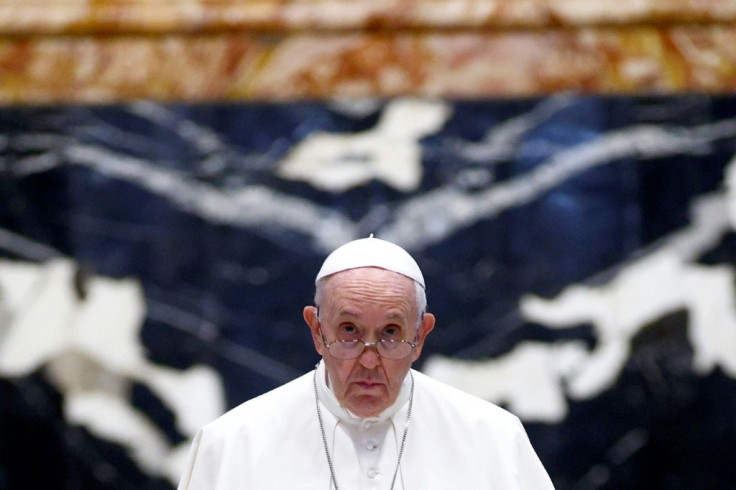What Is Colon Diverticulitis? Pope Francis Undergoes Surgery For The Disease
KEY POINTS
- Pope Francis responded well to his colon surgery, according to the Vatican
- It was not revealed how long the surgery lasted or how long the pope will be staying in the hospital
- Diverticulitis is an inflammation of the small sacs that form in the lining of the digestive system
Pope Francis "reacted well" after undergoing colon surgery Sunday at a hospital in Rome, the Vatican announced.
The 84-year-old pope recently underwent surgery due to diverticulitis, a condition that involves bulges in the wall of the large intestine. According to a statement delivered by Holy See spokesman Matteo Bruni, the pope's surgery was performed under general anesthesia, USA Today reported.
The written statement, however, lacked specific details regarding the pope's condition and did not mention how long the surgery lasted. It is the first time Pope Francis had been admitted to a hospital since becoming pope in 2013.
"The Holy Father, admitted in the afternoon to A. Gemelli Polyclinic, underwent in the evening planned surgery for a diverticular stenosis of the sigmoid" portion of the colon, Bruni said in the statement.
"The Holy Father reacted well to the surgery conducted under general anesthesia," the spokesman said, adding that the surgery involved a four-person surgical team and a four-person anesthesiologist team.
According to the statement, the main surgeon was Dr. Sergio Alfieri, the director of Gemelli's digestive surgery department.
The Vatican did not reveal how long the pope would remain in the hospital, BBC reported.
Just a week before his surgery, Pope Francis asked the public to pray for him during his Sunday appearance.
"I ask you to pray for the pope, pray in a special way," he told the public. "The pope needs your prayers," he said, adding his thanks. "I know you will do that."
Diverticulitis happens when one or more of the bulging pouches that form along the lining of the digestive tract becoming inflamed or infected. According to the Mayo Clinic, these pouches are known as diverticula and are common among people aged 40 and above.
Although it seldom causes major problems, diverticulitis can bring severe abdominal pain, bloating, fever, a change in bowel movement and nausea for those with the disease. Treatment for the condition usually involves rest and prescribed antibiotics, but severe cases of diverticulitis may require surgery, such as in the case of the pope.
Risk factors that increase one's likelihood of developing diverticulitis include aging, lack of exercise and obesity.

© Copyright IBTimes 2024. All rights reserved.





















